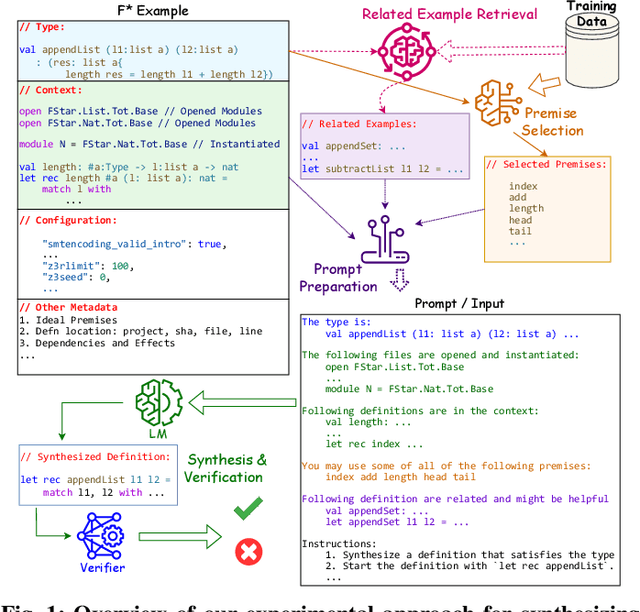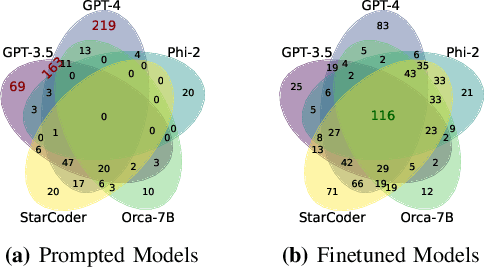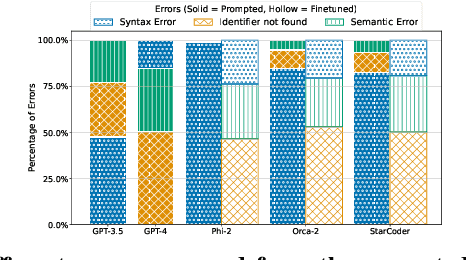Nikhil Swamy
Towards Neural Synthesis for SMT-Assisted Proof-Oriented Programming
May 03, 2024



Abstract:Proof-oriented programs mix computational content with proofs of program correctness. However, the human effort involved in programming and proving is still substantial, despite the use of Satisfiability Modulo Theories (SMT) solvers to automate proofs in languages such as F*. Seeking to spur research on using AI to automate the construction of proof-oriented programs, we curate a dataset of 600K lines of open-source F* programs and proofs, including software used in production systems ranging from Windows and Linux, to Python and Firefox. Our dataset includes around 32K top-level F* definitions, each representing a type-directed program and proof synthesis problem -- producing a definition given a formal specification expressed as an F* type. We provide a program-fragment checker that queries F* to check the correctness of candidate solutions. We believe this is the largest corpus of SMT-assisted program proofs coupled with a reproducible program-fragment checker. Grounded in this dataset, we investigate the use of AI to synthesize programs and their proofs in F*, with promising results. Our main finding in that the performance of fine-tuned smaller language models (such as Phi-2 or StarCoder) compare favorably with large language models (such as GPT-4), at a much lower computational cost. We also identify various type-based retrieval augmentation techniques and find that they boost performance significantly. With detailed error analysis and case studies, we identify potential strengths and weaknesses of models and techniques and suggest directions for future improvements.
Ranking LLM-Generated Loop Invariants for Program Verification
Oct 18, 2023Abstract:Synthesizing inductive loop invariants is fundamental to automating program verification. In this work, we observe that Large Language Models (such as gpt-3.5 or gpt-4) are capable of synthesizing loop invariants for a class of programs in a 0-shot setting, yet require several samples to generate the correct invariants. This can lead to a large number of calls to a program verifier to establish an invariant. To address this issue, we propose a {\it re-ranking} approach for the generated results of LLMs. We have designed a ranker that can distinguish between correct inductive invariants and incorrect attempts based on the problem definition. The ranker is optimized as a contrastive ranker. Experimental results demonstrate that this re-ranking mechanism significantly improves the ranking of correct invariants among the generated candidates, leading to a notable reduction in the number of calls to a verifier.
 Add to Chrome
Add to Chrome Add to Firefox
Add to Firefox Add to Edge
Add to Edge